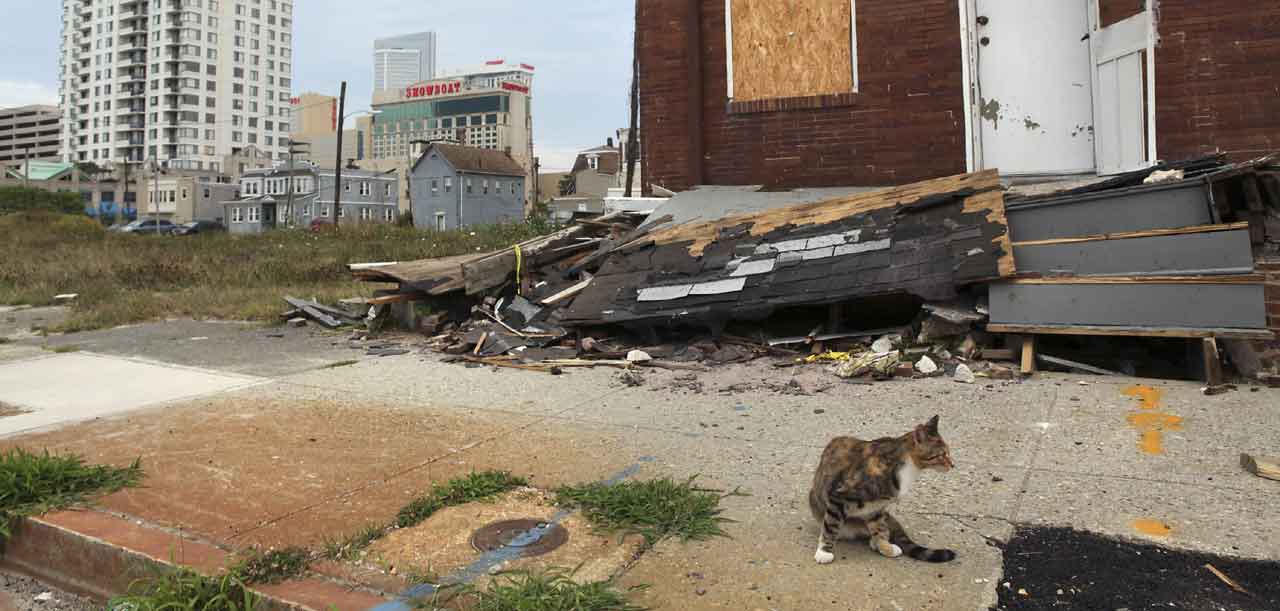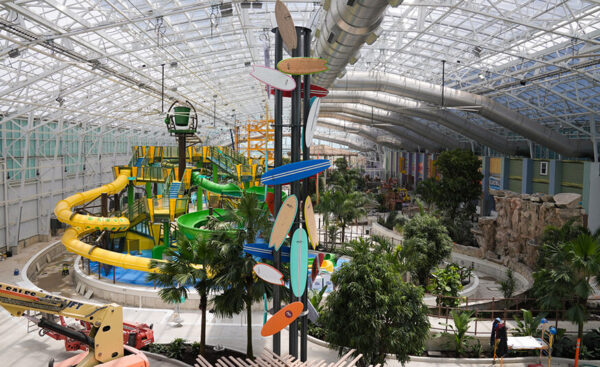Read More Breaking Marketing News
Maverick's Morning Thoughts
How Brains and Marketing Rescued Atlantic City, NJ

In 2008 I was security guard at the Taj Mahal in Atlantic City (A.C.). I was staring out of one of the hotel windows watching the construction of what would become the now defunct Revel Hotel and Casino.
Even though I was just back from Afghanistan, I saw the signs of a big recession looming, yet Atlantic City kept building like nothing was wrong.
Standing in our nearly empty casino, I remembered being told, "if we build it, they will come," during Orientation, but now those words seemed more delusional than real.
While it's true Atlantic City suffered a huge decline, their comeback has been an extraordinary tale in urban resilience and strategic reinvention.
The city's ability to adapt and transform, particularly in the face of economic challenges, speaks volumes about the indomitable spirit of the community and savvy leadership.
This turnaround was not just about rebuilding physical structures, but also about reimagining Atlantic City's identity and appeal.
The focus shifted from solely gambling to a more diversified entertainment and tourism strategy.
This included investments in family-friendly attractions, music festivals, conventions, and sports events, broadening its appeal far beyond the casino floors.
While Las Vegas was saying "what happens in Vegas stays in Vegas", A.C. was basically saying: "bring the kids!"
Marketing played a significant role, painting a new picture of Atlantic City as a vibrant, multifaceted destination.
But before we talk about the comeback, let's discuss the factors that led to its decline.
The Decline: A Series of Unfortunate Events
Atlantic City's downfall can be traced back to the late 20th and early 21st centuries. Factors contributing to this decline included:
- Increased Competition: The emergence of new gaming destinations in neighboring areas such as Philadelphia and Delaware that eroded Atlantic City's monopoly on the casino market in the region.
- Economic Downturn: The 2008 financial crisis had a severe impact on discretionary spending, affecting tourist influx and gambling revenues.
- Natural Disasters: Superstorm Sandy in 2012 wreaked havoc on the city, causing extensive damage and deterring tourism.

Standing in our nearly empty casino, I remembered being told, "if we build it, they will come," during Orientation, but now those words seemed more delusional than real.
- Crime: There was tremendous urban crime spilling onto the tourist-saturated Boardwalk and beach. I can remember living in a Condo on the beach at the 5000 Boardwalk and watching from my condo window as drug deals took place by the crashing of the waves at 1 am in the morning.
- Casino Closures: Several iconic casinos, including the Atlantic Club, Showboat, Trump Plaza, and Revel, shut down, leading to job losses and economic instability. I can remember hearing about the Resorts Casino (right next door to where I worked) hadn't paid their mortgage in months. Months!)
So let's clarify: The high-stakes, gambling-centric, crime-ridden atmosphere of Atlantic City, coupled with rising competition and the sting of recession, necessitated a fresh approach to drawing in tourists and boosting revenue.
So, let's take a look at what they did:
The Ascent: Turning the Tide
The revitalization of Atlantic City, beginning around the mid-2010s, was a concerted effort by the city, state, and private investors. Key elements of this resurgence included:
- Diversification of Entertainment: Moving beyond casinos, Atlantic City invested in family-friendly attractions, music festivals, and sports events to appeal to a broader audience.
- Infrastructure Revitalization: Significant investment went into refurbishing the Boardwalk and upgrading facilities to enhance the tourist experience.
- New Investments in Casinos and Hotels: The opening of new establishments like the Hard Rock Hotel and Casino (which replaced the Taj Mahal), and the Ocean Resort Casino, infused new life into the city's gaming and hospitality sector.
- Safer environment: I can remember seeing large housing projects in 2008 on my way home from work. And then one day, they were just gone. Poof! I later found out the residents, and crime rate, had been pushed out to surrounding areas such as Ventnor, Pleasantville and Absecon.
Marketing played a crucial role in rebranding Atlantic City and re-establishing it as a premier entertainment destination. Some key marketing strategies included:
Rebranding Campaigns: The city launched comprehensive marketing campaigns to reposition itself as more than just a gambling hub, emphasizing its beaches, boardwalk, and family attractions.
Digital Marketing and Social Media Engagement: Leveraging digital platforms, Atlantic City targeted younger demographics, promoting upcoming events, new attractions, and special deals.
Public Relations and Media Partnerships: Collaborations with influencers, celebrities, and media outlets helped to shed a positive light on the city’s transformation and attract national attention.
Event Marketing: Hosting high-profile events, such as music festivals and sporting events, served as a marketing tool to showcase the city's renewed energy and diverse offerings.
Community Engagement: Efforts were made to involve the local community in revitalization initiatives, fostering a sense of pride and ownership, which in turn became a grassroots marketing tool.
Atlantic City's remarkable turnaround story is a testament to the power of strategic marketing and diversification.
By shifting its image from a gambling-centric destination to a multifaceted entertainment hub, the city managed to attract new visitors and reclaim its glory. You see this story isn't just about new events and attractions, it's about re-branding.
The story of Atlantic City demonstrates that with the right marketing and branding strategies, even cities facing decline can reinvent themselves and thrive again.
My time as a security guard at the Taj Mahal in Atlantic City was a defining chapter in my life.
It ended abruptly when I confronted two individuals on the Boardwalk suspected of involvement in a robbery, leading to a fist fight (I was just back from combat, after all).
This incident, while unfortunate, marked the end of one phase of my career and the beginning of another. My experience at the Taj Mahal was enriching, yet it was clear that both my path and the city's were destined for broader horizons and new opportunities.
This turn of events was a reminder that sometimes life's unexpected moments pave the way for greater things, both for individuals and for places like Atlantic City.
Sometimes a brief decline can lead to a huge ascent.
To your success!

DOMINATE and WIN with MAVERICK
Learn how to use marketing to get whatever you want.